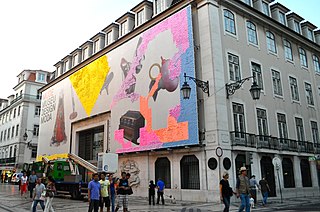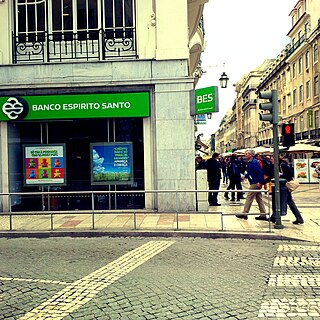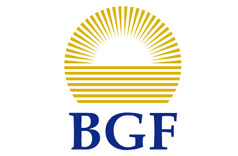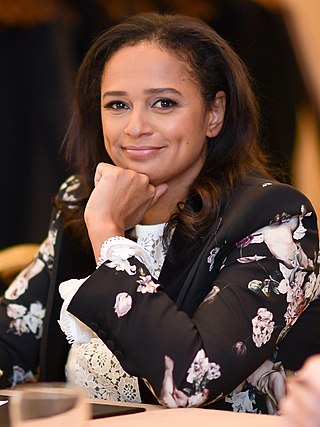
Banco Nacional Ultramarino is a Macau banking and financial services corporation. It was a Portuguese bank with operations throughout the world, especially in Portugal's former overseas provinces. It ceased existence as an independent legal entity in Portugal following its merger in 2001 with Caixa Geral de Depósitos, the government-owned savings bank.

The Central Bank of Cuba is the central bank of Cuba. It was created in 1997 to take over many of the functions of the National Bank of Cuba, which was established on 23 December 1948 and began operations on 27 April 1950.

Caixa Geral de Depósitos (CGD) is a Portuguese state-owned banking corporation, and the largest bank in Portugal, established in Lisbon in 1876.

The Portuguese-speaking African countries, also known as Lusophone Africa, consist of six African countries in which the Portuguese language is an official language: Angola, Cape Verde, Guinea-Bissau, Mozambique, São Tomé and Príncipe and, since 2011, Equatorial Guinea. The six countries are former colonies of the Portuguese Empire. From 1778 until independence, Equatorial Guinea was also a colony of the Spanish Empire.
Banco Angolano de Investimentos, short BAI, was founded in 1996 as the first private bank in Angola. The BAI is a full-service bank operating in Angola with a nationwide network of (mid-2012) 89 branches in all 18 provinces, with 41 of those branches in Luanda Province. In 9 of the 18 provinces, BAI operates only one branch office.
Banco de Poupança e Crédito (BPC) is a government-owned, full service bank in Angola. With some 68 branches, including one in Cabinda, it has the largest branch network in the country.

The National Bank for Economic and Social Development is a development bank structured as a federal public company associated with the Ministry of the Economy of Brazil. The stated goal is to provide long-term financing for endeavors that contribute to the country's development. BNDES is one of the largest development banks in the world. Its non-performing loan ratio is also less favorable (2.2%) compared to the CDB's that stands below 1%.

Banco Espírito Santo (BES) was a Portuguese bank based in Lisbon that on 4 August 2014 was split in two banks: Novo Banco, which kept its healthy operations, and a "bad bank" to keep its toxic assets.

The National Bank of Angola is the central bank of Angola. It is state-owned and the Government of Angola is the sole shareholder. The bank is based in Luanda, and was created in 1926, but traces its ancestry back to 1865. The National Bank of Angola is active in developing financial inclusion policy and is a member of the Alliance for Financial Inclusion.

The Government Development Bank for Puerto Rico (GDB) —Spanish: Banco Gubernamental de Fomento para Puerto Rico (BGF)— is the government bond issuer, intragovernmental bank, fiscal agent, and financial advisor of the government of Puerto Rico. The bank, along with its subsidiaries and affiliates, serves as the principal entity through which Puerto Rico channels its issuance of bonds. As an overview, the different executive agencies of the government of Puerto Rico and its government-owned corporations either issue bonds with the bank as a proxy, or owe debt to the bank itself.

Isabel dos Santos is an Angolan businesswoman, the eldest child of Angola's former President José Eduardo dos Santos, who ruled the country as a dictator from 1979 to 2017. Once considered Africa's richest woman according to Forbes magazine, with a net worth exceeding US$2 billion, she was dropped from the magazine's list in January 2021 after the freezing of her assets in Angola, Portugal and the Netherlands. She owes $340 million to the Portuguese company PT Ventures.

The institutional corruption in Angola refers to the pervasive and long-standing issue of corruption within the country's government and public institutions. The aftermath of the 30-year civil war and the influence of the Soviet command economy have resulted in significant institutional damage and the emergence of a centralized government with authoritarian tendencies. This has allowed the president and his associates to exert control over the nation's resources, enabling them to exploit the economy for personal gain through legal and extra-legal means.

The Central Bank of São Tomé and Príncipe is the central bank of São Tomé and Príncipe, a Portuguese-speaking island nation off the western equatorial coast of Central Africa.

Banco Português do Atlântico was a Portuguese bank based in Porto that operated between 1942 and 2000. It was founded on 31 December 1942 in Oporto as a successor to the banking house Cupertino de Miranda & Company, founded in 1919. Banco Comercial Português (BCP) acquired BPA in 1995 and absorbed it in 2000.

Mario Marcel Cullell is a Chilean economist who has been serving as Chile Minister of Finance since 11 March 2022. He previously served as Governor of the Central Bank of Chile. He was named Governor in December 2016 and member of the Bank's Board from October 2015. He has been a close collaborator to the governments of the centre-left Coalition of Parties for Democracy (1990–2010), and for six years held the position of Budget Director, where he played a key role in the design of the structural surplus rule.

The International Development Finance Club (IDFC) is a partnership of development banks whose aim is to complement each other's needs for a more efficient global development.

Abraão Pio dos Santos Gourgel is an Angolan economist who served as Minister of Industry, and former Minister of Economy and Finance. He was Governor of the National Reserve Bank (BNA) from 2009 to 2010, and Chairman of the Board of Directors of the Development Bank of Angola (BDA). He was fired from this position in January 2020 and replaced by Henda Essanju Inglês.
This page is based on this
Wikipedia article Text is available under the
CC BY-SA 4.0 license; additional terms may apply.
Images, videos and audio are available under their respective licenses.














